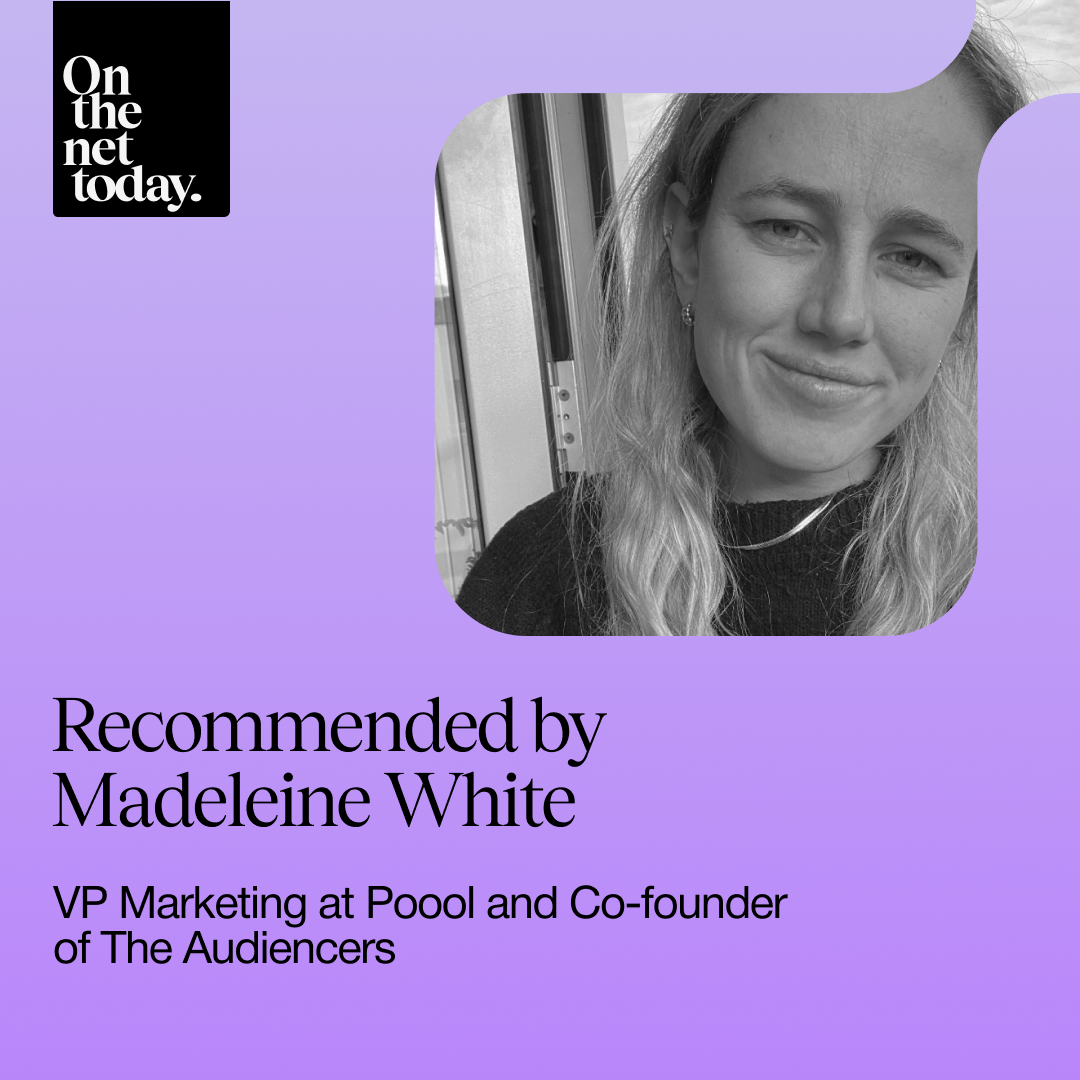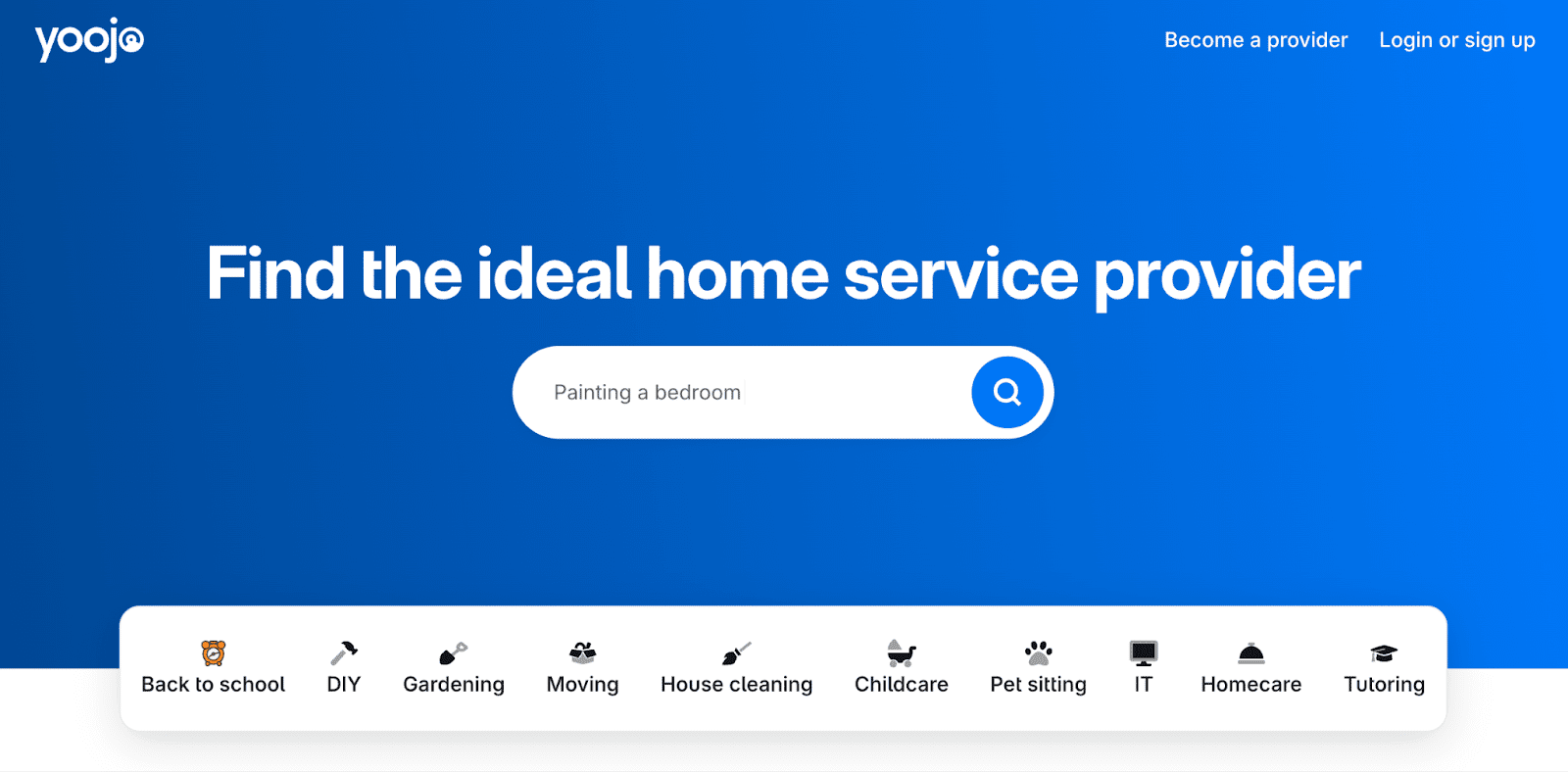Startups who switch to Intercom can save up to $12,000/year
Startups who read beehiiv can receive a 90% discount on Intercom's AI-first customer service platform, plus Fin—the #1 AI agent for customer service—free for a full year.
That's like having a full-time human support agent at no cost.
What’s included?
6 Advanced Seats
Fin Copilot for free
300 Fin Resolutions per month
Who’s eligible?
Intercom’s program is for high-growth, high-potential companies that are:
Up to series A (including A)
Currently not an Intercom customer
Up to 15 employees
Hello!
Welcome to a new edition of “On the Net Today”, the newsletter where every Friday we share a selection of useful and interesting resources to help you get the most out of the internet and make the best use of your browsing time.
Here are the topics we’ve prepared for today:
The 30 most iconic companies in internet history
Ros Atkins, the BBC journalist known for breaking down complex news stories into clear and concise content
A great resource to learn about newsletters: Beehiiv's blog
In brief
Express Quiz
Recommended by: Madeleine White
The 30 most iconic companies in internet history

To mark their 30th edition, the Webby Awards, the most relevant internet awards, have made a selection of the 30 most iconic companies in internet history: The Webby 30.
This special feature tells the story of companies "that built the Internet as we know it" and that "not only shaped how the web works, but also the experience it offers."
These are, in alphabetical order, the selected companies: Adobe, Amazon, Apple, BBC, BBDO, BuzzFeed, CNN, Comedy Central, eBay, EPIC Games, ESPN, Google, HBO, Meta, Microsoft, NASA, National Geographic, NBC, Netflix, Nike, NPR, PBS, R/GA, Reddit, Spotify, The New York Times, TikTok, Twitter/X, Wieden+Kennedy, and Wikipedia.

This selection aims to be "a living history of the Internet itself, filled with platforms, stories, and communities that shaped culture, and pioneers whose influence still resonates every time we go online." The chosen companies have also won multiple Webby awards throughout the past three decades.
The organizers of the Webby Awards have also highlighted that "equally important is that they changed the way people experience the Internet: how we create, connect, and share. Some pushed the boundaries of what technology could do. Others built legacies so solid that they continue to shape the digital landscape today."
Over three decades, the Webbys "have watched these pioneers take bold risks, invent new formats and languages, and set benchmarks during every major technological shift, from dial-up access to mobile devices and artificial intelligence. They demonstrated what was possible, inspired their peers, and defined standards that endure."
The deadline to submit entries for the 30th edition of the Webby Awards ends on October 24, 2025.
Links:
Ros Atkins, the BBC journalist known for breaking down complex news stories into clear and concise content

Ros Atkins is a BBC journalist known for his ability to explain news and information in a way that's highly understandable for audiences.
His "explainers", videos where the focus is on explaining a complex news topic as clearly as possible, have become one of the leading global references for this informational format.
Currently, Ros Atkins is Analysis Editor at BBC News and co-host, alongside Katie Razzall, of the weekly program "The Media Show" on BBC's Radio 4, dedicated to analyzing the media industry.
On the BBC's YouTube channel there is a specific section dedicated to Ros Atkins' "explainers".
His "explainers" have also been used by the BBC as educational materials, to help students understand complex topics.
Last year, Atkins presented the podcast "Communicating with Ros Atkins", in which he interviewed expert communicators from various fields to show how to communicate effectively.
Additionally, Ros Atkins is the author of the book "The Art of Explanation: How to Communicate with Clarity and Confidence"

Links:
Video: Ros Atkins on explainers - BBC
A great resource to learn about newsletters: Beehiiv's blog

Beehiiv is the newsletter platform where we publish "Hoy en internet" and its sister newsletter in English, "On the Net Today".
One of the resources we use to stay up-to-date on the possibilities that newsletters offer is the Beehiiv blog, where articles with tips, ideas, references, best practices and other information that can be very useful for any person or company wanting to launch or improve their newsletter are continuously published.
These articles, provided by experts from the Beehiiv team, allow you to learn about digital content creation, how to grow your audience, or how to generate revenue with a newsletter, among many other practical matters.
Links:
In brief
Infographic: the world's cities with the most expensive rent: Which Cities Have the Most Expensive Rent in the World in 2025? – Visual Capitalist
Fast Company magazine has published the winners and finalists of its annual design awards "Innovation by Design 2025".
The Atlantic magazine has recently launched "AI Watchdog", the "AI watchdog", an investigation that allows you to search for books, videos and other content formats used by AI companies to train their tools.
The Superhuman AI newsletter offers over a thousand prompts for ChatGPT for all types of queries.
Google has announced various AI improvements in its Chrome browser, the most used by internet users: Chrome: The browser you love, reimagined with AI.
The elearning platform Udemy has published its annual report on global trends in the world of learning and personal skills, which focuses on the transformational change brought about by AI: 2026 Global Learning & Skills Trends Report.
The New Yorker has published an extensive report on the progress in the construction of Barcelona's Sagrada Familia: The Sagrada Família Takes Its Final Shape.
Gaurav Bhaya, vice president and general manager of Google Ads, writes on Think with Google about changes in the world of search: The new era of Google Search: How to respond to a world that asks everything.
And we end these links with the video of Jimmy Kimmel's return this past Tuesday to his show Jimmy Kimmel Live on ABC network:
Express Quiz
When we visit a webpage, we see that the address starts with these initials: https://
What does HTTPS stand for?
You can find the answer, among many other places, in the corresponding Wikipedia entry.
The solution to last week's express quiz, where we asked how many emails are sent every minute worldwide, was: 251.1 million
Recommended by: Madeleine White

Name: Madeleine White
Title: VP Marketing at Poool and Co-founder of The Audiencers
Links: LinkedIn, The Audiencers, Poool.
Recommended resource: Yoojo
Why?
I'm a big believer in "it's not what you know, it's who you know", and the internet provides so many opportunities for this to be even more true. Through various apps you can be connected with people who have tools that you need so you don't have to buy them yourself (Poppins), you can find those who share similar hobbies to meet up with (Heylo, Mingle...) or those who have skills to help you with a project or job. For this last one, I've been using Yoojo, an app where you 'publish' the job you need doing - anything from cleaning and building work to IT support or looking after a pet - and people apply for the position, proposing a price and sharing why you should choose them. I recently used it for moving apartments and renovating my creaky Parisian flooring!

If you're visiting the newsletter directly on the web or it's been forwarded to you and want to receive it directly in your inbox for free, click below:
That's all for today. See you in a week!



